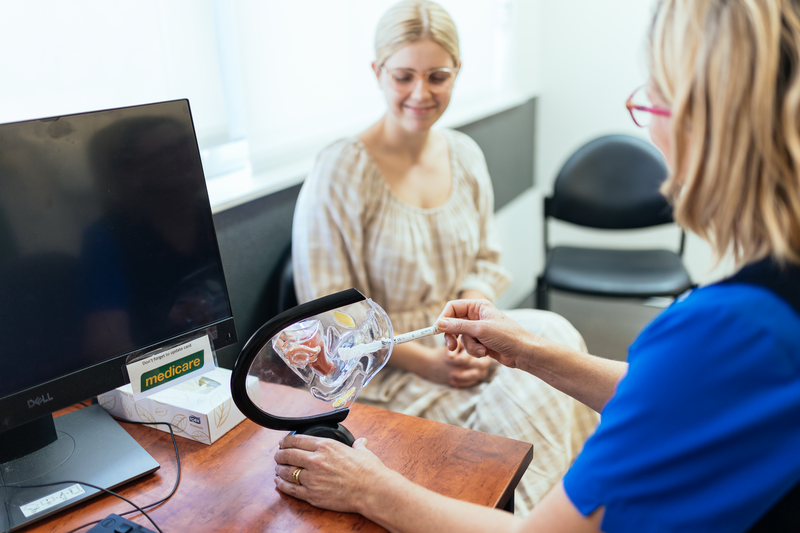
Did you know that cervical cancer is one of the most preventable cancers? Surprisingly, only two-thirds (67.5 per cent) of women aged 25-74 years in our local community participate in cervical screening. This is despite our region having one of the highest cervical cancer incidence rates in Australia, with around 190 diagnoses across the state each year.
The good news is that a new option for cervical screening self-collection, introduced in mid-2022, is proving highly effective in increasing participation in early screening and detection.
This initiative is particularly significant for us in the Wide Bay, Discovery Coast and North Burnett regions. Early data demonstrates that people living in the most remote areas of our region are more than twice as likely to choose a self-collected test compared to those in urban areas. This is a testament to the power of accessible healthcare services.
In addition to self-collection, we're proud to offer another critical resource right here in our community - the Mobile Women's Health Service. This program features a dedicated nurse who provides confidential and free screenings and other services exclusively for women. One notable addition to the services provided by our skilled health nurse is the ability to insert and remove Implanon.
Implanon is a small, flexible rod about the size of a matchstick that is inserted under the skin of the upper arm. It's a highly effective form of contraception, providing protection against pregnancy for up to three years. Please note that patients must obtain a prescription and acquire the Implanon themselves, but our skilled health nurse is now equipped to perform this procedure, offering women in our community a convenient and accessible option for contraception.
While a Cervical Screening Test should be conducted every five years for women and individuals with a cervix aged 25 to 74 years who have ever been sexually active, research from our local health services indicates that many individuals are unaware of this recommendation.
The test itself detects human papillomavirus (HPV), which, if left untreated, can lead to cell changes that may progress to cervical cancer. Early detection of HPV and cell changes can potentially prevent HPV infection from developing into cervical cancer.
Considering that cervical cancer can take up to 10-15 years to develop, catching it early through routine screening is critical. For those who may have postponed their screening appointments due to the pandemic, now is the time to catch up, regardless of vaccination status against HPV.
If you've received an invitation or reminder about cervical screening, please contact your healthcare provider to book an appointment. If you have any questions or concerns, or if you're interested in self-collection for cervical screening or other services provided by the Mobile Women's Health Service, don't hesitate to discuss it with your healthcare provider to determine the best approach for you.
For more detailed information on cervical screening, you can visit https://www.widebay.health.qld.gov.au/services/womens-health-clinics